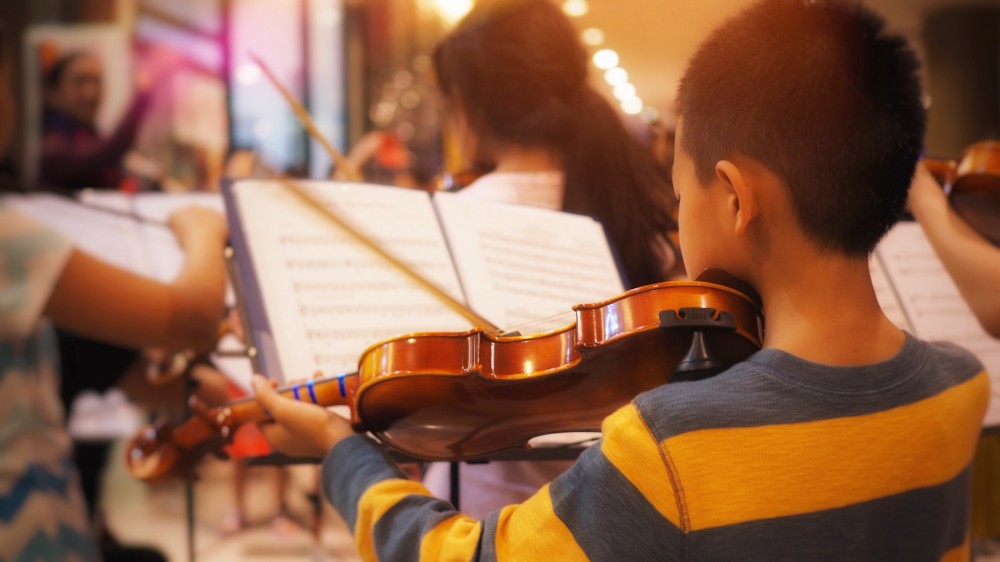
Does learning music make children smarter?
From the moment we were born, music fills our lives. It’s all around us. Music is a universal language that everyone understands: the strum of an acoustic guitar, the thump-thump of a speaker’s bass, the rhythm of a blues song.
Research shows that music can be a tool for advanced learning – shaping our cognitive abilities, social abilities, and communication skills. Let’s explore the link between music and intelligence, particularly in children.
Did you know that several parts of the brain are linked to the auditory system and other sensory areas? When music enters our ears, those sound waves interact with the pre-frontal cortex (cognition), the motor cortex (movement), and the complex auditory cortex.
These areas of the brain interact with each other, creating patterns of connections. So, when a child learns to play music, they simultaneously use their sight, touch, hearing, movement, and awareness senses.
While the exact science of how the brain keeps up is under debate, it is clear that music stimulates the brain in such a way that it lights up, producing the brain’s equivalent of full-body exercise.

The cognitive impact of playing a musical instrument, or even listening to music, has been studied extensively. Neuroscientific research reveals its positive effects on brain development.
According to Frontiers in Neuroscience, “Children who undergo musical training have better verbal memory, second language pronunciation accuracy, reading ability, and executive functions. Learning to play an instrument as a child may even predict academic performance and IQ in young adulthood.”
Music is based on rhythmic patterns, which gives children a structured way of understanding auditory messages.
When we listen to music, both hemispheres of the brain receive stimulation. For any child, this is a significant benefit of music.
Additionally, music is multi-sensory. As we mentioned briefly, it engages the child’s visual, auditory, and tactile senses, enhancing learning and understanding.
At some point, your child may play music with someone. Playing music together may enhance your child’s social and emotional awareness, which means the ability to manage, identify, and express their emotions in a social setting.
According to a new research study by DIYS, learning to play a musical instrument may increase intelligence by 10%. This study came about during COVID-19 when the platform challenged 4.6K users to choose a new hobby and then take an IQ test after six months of learning the hobby.
While knitting and exercising were among the chosen hobbies, the highest IQ increase came from those who decided to make music. The guitar was the most popular choice. After those six months, the music-makers average IQ score had jumped from 103 to 113.

Your child can learn a new instrument independently, but they will never master an instrument without proper instruction and guidance. Tutors provide the know-how and encouragement needed to take your child’s music skills from beginner to advanced. Our music teachers at Ace Tutors are here to help. The best part? Lessons can be conducted in the comfort of your home.